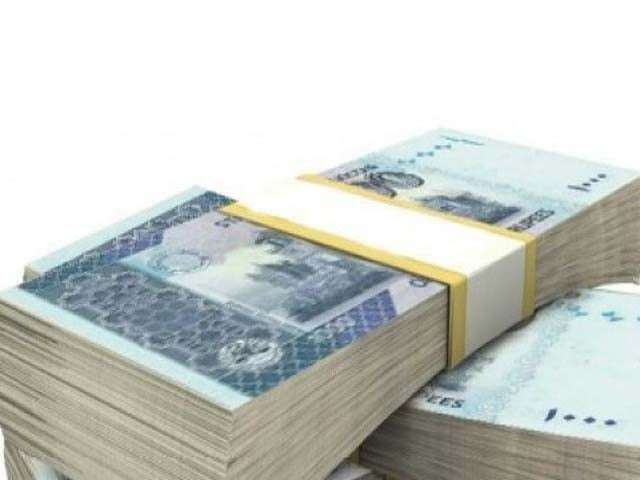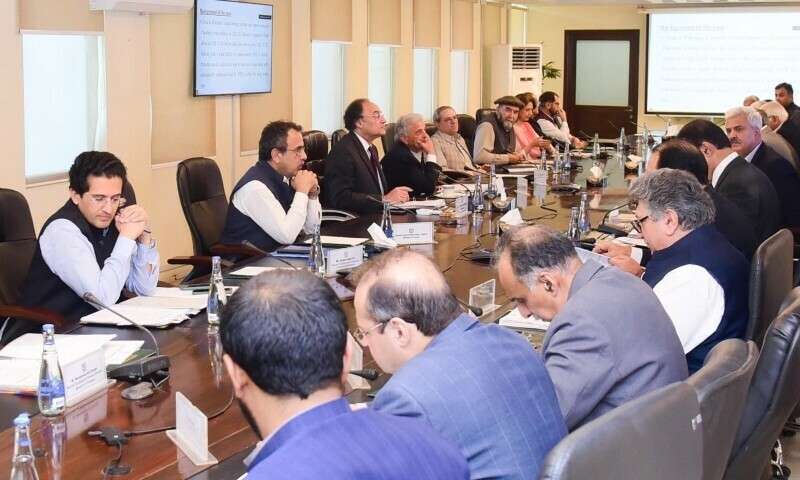The government has given the green light to over a dozen large-scale projects valued at Rs1.3 trillion, many of which were previously initiated but have encountered significant cost hikes. Among the most notable is a new federal-funded motorway in Punjab, which will now cost Rs436 billion, significantly more than its original estimate.
ECNEC Sanctions Major Developments
The Executive Committee of the National Economic Council (ECNEC), the country’s top decision-making body for economic projects, approved these initiatives on Tuesday. Led by Deputy Prime Minister Ishaq Dar, ECNEC sanctioned 13 major schemes spanning critical sectors such as transportation, railways, space technology, and public infrastructure. Notably, two flood rehabilitation projects in Sindh also received approval.
Despite financial limitations, the overall project allocation surpasses the annual federal development budget. Some of these schemes will receive partial funding from provincial governments to ease financial constraints.
Lahore-Sahiwal-Bahawalnagar Motorway Sees a Sharp Cost Increase
One of the most significant approvals was for the Lahore-Sahiwal-Bahawalnagar Motorway, a 295-kilometer stretch. Initially sanctioned in August 2023 at Rs264 billion, the project cost has surged by 65%, now reaching Rs436 billion. Despite financial restrictions, the federal government remains committed to proceeding with the project, although the IMF-backed National Fiscal Pact discourages federally funded projects that primarily benefit a single province. While Prime Minister Shehbaz Sharif had urged Punjab to finance half the project’s cost in January, a final decision is still pending.
ECNEC was informed that 90% of the land acquisition for the first segment of the motorway is complete. The National Highway Authority (NHA) has been permitted to begin construction from Lahore Ring Road to the Raiwind-Kasur Road Interchange using Public Sector Development Program (PSDP) funds. Additionally, NHA will revisit the route alignment to integrate existing motorways per earlier discussions.
Pakistan’s Optical Remote Sensing Satellite (PRSS-O2) Gets Approval
ECNEC also sanctioned the revised cost of Rs19.5 billion for the Pakistan Optical Remote Sensing Satellite (PRSS-O2). The satellite, primarily funded by a Chinese concessional loan covering 85% of expenses, will feature an advanced optical payload capable of capturing high-resolution earth imagery.
Sindh’s Flood Emergency Rehabilitation Project Expands
The Sindh Flood Emergency Rehabilitation Project (SFERP) Phase-I saw a cost revision, increasing by Rs22.4 billion (34%) to Rs88.4 billion. Initially approved in December 2022 at Rs66 billion, the World Bank-funded initiative focuses on restoring roads, water supply, and drainage systems while enhancing food security and livelihoods. ECNEC has mandated GPS-coordinated photographic documentation of damages to ensure transparency in fund utilization.
Previously, SFERP provided financial relief to 2.2 million displaced households through cash-for-work programs, labor kits, and reconstruction grants. The increase in costs stems largely from road restoration, which now accounts for Rs37 billion, up from Rs22 billion. Another Sindh flood rehabilitation project worth Rs33 billion also received approval.
Rawalpindi Ring Road Project Sees 40% Cost Hike
The Rawalpindi Ring Road (R3) project has seen its cost balloon from Rs23.6 billion to Rs33 billion, reflecting a 40% increase. Originally sanctioned in December 2021, this 38.3-kilometer, six-lane expressway now includes additional infrastructure such as 49 culverts (up from 33), 10 underpasses (previously 4), and 26 flyovers and bridges (up from 19). The cost revision exposes inefficiencies in the original project planning.
Expansion of Railway Services and Road Rehabilitation Efforts
Pakistan Railways has secured approval for the procurement of 820 bogie wagons and 230 passenger coaches. The project’s cost has soared by 129%, from Rs31 billion to Rs71 billion, with a revised completion deadline of June 2027.
ECNEC also endorsed the Rs12.9 billion Multan-Vehari Road rehabilitation project, which aims to upgrade 93.5 kilometers of roadway to standard carriageway specifications.
Green Line Bus Rapid Transit (BRT) System Updates
ECNEC reviewed the Rs13.5 billion Green Line BRT project, granting administrative approval for clearing pending financial liabilities before transferring operations to the Sindh government. However, the matter of fare increases remains unresolved and has been left for the provincial government to decide.
Public-Private Partnership Enhancements and Additional Approvals
To encourage private investment in public projects, ECNEC sanctioned Rs28 billion to boost Public-Private Partnership initiatives. Additionally, the Sindh government has been directed to ensure the completion of all project-related activities by June next year to avoid commitment charges on unused loans from the Asian Development Bank (ADB).
Frequently Asked Questions (FAQs)
1. Why have the costs of these projects increased?
Several factors contribute to cost hikes, including inflation, currency depreciation, design modifications, and increased material and labor costs.
2. How will the government fund these mega projects given budget constraints?
Funding will come from a mix of federal and provincial budgets, foreign loans, and public-private partnerships to manage financial limitations.
3. What impact will these projects have on Pakistan’s economy?
These infrastructure developments aim to enhance connectivity, boost economic growth, create jobs, and improve trade routes across the country.
4. Why is the Lahore-Sahiwal-Bahawalnagar Motorway controversial?
The controversy arises from its federal funding, despite primarily benefiting Punjab, which contradicts IMF-backed fiscal agreements restricting such spending.
5. What are the objectives of the PRSS-O2 satellite?
The PRSS-O2 satellite is designed to capture high-resolution imagery for various applications, including urban planning, environmental monitoring, and disaster management.
These approvals highlight Pakistan’s commitment to advancing its infrastructure, despite financial challenges. Mega infrastructure projects in Pakistan remain a key priority for economic development and modernization



